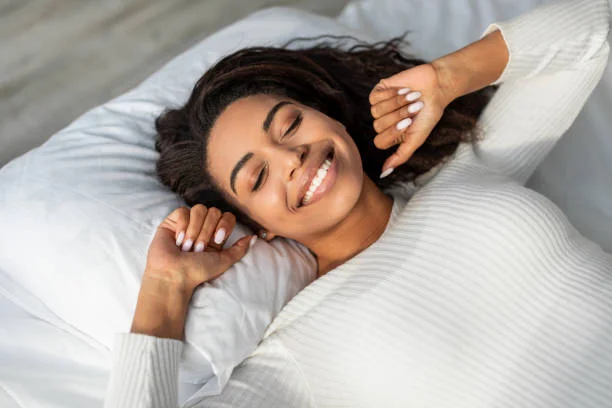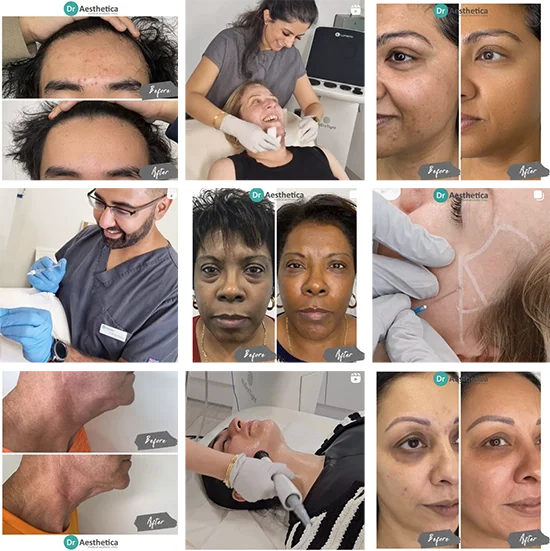How Bruxism Can Trigger Migraines and Tension Headaches?
Bruxism, or teeth grinding, can lead to a variety of unpleasant symptoms, including migraines and Bruxism headaches. When you grind your teeth, you put a great deal of pressure on your jaw and surrounding muscles. This can cause tension headaches (which we all hate!), that are often described as a dull ache that radiates from the neck to the temples.
Migraines are a type of headache that involves a throbbing pain on one side of the head, nausea and sensitivity to light/sound. The link between Bruxism and migraines isn't fully understood yet but evidence suggests those with Bruxism are more likely to get migraines.
A certain theory is that the muscle tension caused by Bruxism can trigger a chain reaction that leads to migraine pain. For example, when the muscles in the jaw become tight, they can pull on the muscles in the neck and shoulders, which in turn can cause tension and trigger a migraine. The pain radiates throughout the body! Additionally, Bruxism may also increase inflammation in the body, which is a cause of migraines.

How To Tell The Difference Between Other Headaches and a Bruxism Headache?
Headaches always mysteriously appear and have a range of causes. An uncommonly known cause of headache is Bruxism. These headaches are often confused with other causes of headaches, such as dehydration or tension, but there are key differences to look out for to know if your headaches are from Bruxism.
First, a Bruxism headache tends to happen around the temples, forehead, and the back of the head. They are often described as a dull ache, rather than the throbbing pain associated with migraines. Additionally, these headaches may come with pain or tenderness in the jaw muscles.
In contrast, tension headaches are a feeling of tightness or pressure around the head, and they often involve the neck and shoulders as well. Migraines involve intense, throbbing pain that is usually focused on one side of the head. When determining if your headaches are from Bruxism, make sure to consider your other symptoms as well.
Do you experience jaw pain or stiffness? Do you notice that your headaches tend to occur more in the morning, or after waking up from a night's sleep (sleep Bruxism)?
These can be signs that your headaches are caused by teeth grinding.
The Role of Lifestyle Changes in Managing Bruxism Headaches
As stress is a common trigger for both Bruxism and headaches, consider lifestyle changes to help manage Bruxism headaches. Finding ways to reduce stress can be an effective way to manage these conditions.
One helpful strategy is to practise relaxation techniques, such as meditation or deep breathing. Relaxation techniques must be practised over a consistent period. These techniques can help reduce muscle tension and promote a sense of calm, which may reduce the frequency or intensity of your headaches.
Good sleep is also needed, as lack of sleep can increase stress and exacerbate Bruxism and headaches. Try to establish a regular sleep routine and create a relaxing environment in your bedroom to help promote restful sleep.
Diet can also play a role in managing Bruxism-related headaches. Avoiding foods that are high in caffeine or sugar, which can increase stress and exacerbate Bruxism, may help reduce your symptoms. Staying hydrated by drinking plenty of water throughout the day can also help reduce tension and prevent headaches.
Additionally, maintaining good posture and avoiding activities that place excessive strain on the jaw muscles, such as chewing gum or clenching your jaw, can help reduce the frequency and severity of your headaches.

This article was read and reviewed by the face of DR Aesthetica himself - DR Baldeep Farmah.
Coping With a Bruxism Headache: Tips for Self-Care and Pain Management
One of the most effective ways to manage Bruxism-related headaches is to practise good oral hygiene and to wear a mouthguard at night. This can help reduce the impact of teeth grinding on your teeth and jaw muscles, which can in turn reduce your risk of developing headaches.
Another helpful strategy is to apply heat or cold therapy to the affected area. Try Applying a warm compress or taking a warm bath. This can help relax tense muscles and reduce pain, also a cold compress or ice pack can help numb the area and reduce inflammation.
Engaging in regular physical activity can also be helpful in managing Bruxism-related headaches. Exercise promotes the release of endorphins, which are natural pain relievers, and can also help reduce stress and tension.
Meditation, deep breathing, and yoga, can also be effective in reducing the frequency and pain of Bruxism headaches. These techniques help calm the mind and promote relaxation, which can help reduce stress and tension.
Effective Treatments for Bruxism and How They Can Alleviate Associated Headaches?
There are several effective treatments for Bruxism that can help alleviate associated headaches which you can view here. Another option is a Botox treatment which can alleviate pain from jaw jaw
Don’t suffer in silence make sure to Contact us today. You can view a list of potential treatments for Bruxism here.
However do you Want a treatment that:
- Lasts approximately 6 months?
- Only requires 24 hours of downtime
- Is so painless that it requires no anaesthetic
- Displays results by 4 weeks
Then a Botox treatment may be perfect for you! View more information on a Botox treatment here.


